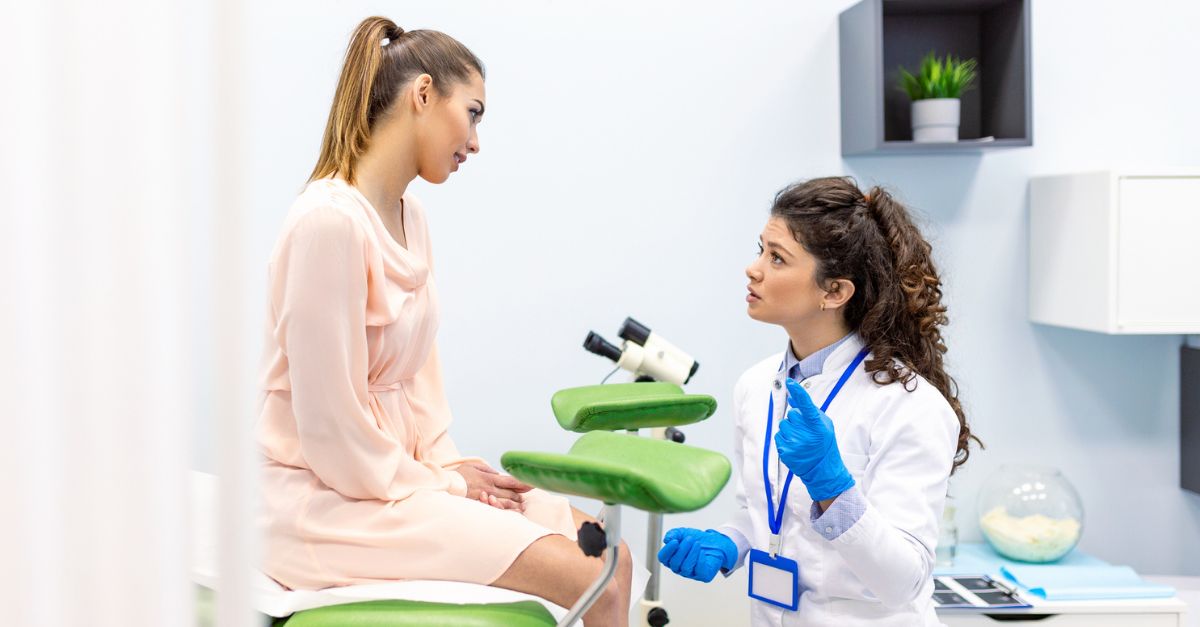Since human immunodeficiency virus (HIV) was first reported several decades ago, medical advancements have enabled people with the disease to lead longer and healthier lives. But being diagnosed with HIV is still life-changing, and knowing more about its transmission, symptoms, and treatment options can help women make informed decisions about their health. Here, we answer some common questions about the illness.
What Happens to Your Body When You Are HIV Positive?
HIV is a sexually transmitted infection that attacks your body’s immune system. Because it targets cells that help you ward off and heal from infections, it alters your ability to fight off illnesses. Left untreated, HIV can progress into AIDS, a life-threatening condition in which your immune system becomes severely compromised.
Fortunately, we now have effective treatment options that prevent most people with HIV from developing AIDS. While your body can never get rid of HIV entirely, it can be managed successfully through virus-blocking medications.
What Are the Main Symptoms of HIV?
One question we encounter often is, “How does HIV make you feel?” The answer varies depending on the stage of the infection, but here’s what you should know.
Within two to four weeks of contracting the illness, your body enters the acute phase, and you may experience flu-like symptoms such as:
- Fever
- Night sweats
- Muscle aches
- Fatigue
- Swollen lymph nodes
- Chills
- Sore throat
These symptoms can vary in intensity and duration. For some, they’ll linger for a few days, while others may have them for up to several weeks. But not everyone who has HIV will experience them; in fact, one-third of people don’t have any signs during the acute phase. Even when you don’t have symptoms, in this phase your viral load is high, meaning it can spread easily to others.
Several weeks later, HIV progresses into the chronic phase, also known as clinical latent infection. By this point, any symptoms that first appeared tend to subside. Within eight to ten years, untreated HIV will usually progress into AIDS, when symptoms such as recurring fevers, diarrhea, chills, weakness, and rapid weight loss occur.
How Long Can You Live with HIV Without Knowing?
Since it’s fairly common to go through the first two stages of HIV without experiencing symptoms, it’s possible to live with the disease for a decade or more without knowing you have it. In some cases, AIDS symptoms may not develop for up to 15 years.
What Are Some Ways to Prevent HIV?
Fortunately, there are ways to reduce your risk of getting HIV. Unlike the cold or flu which can be passed through airborne microdroplets or survive on surfaces, HIV can only be transmitted under specific conditions, including the exchange of bodily fluids such as semen, vaginal secretions, and blood.
To safeguard yourself, always wear a condom when engaging in vaginal and/or anal sex, especially with a new partner. Restricting the number of sexual partners you have also decreases your chances of exposure. Keep up with your regular STI screenings too, as infections can cause genital sores that make it easier for HIV to be passed along.
When it comes to needles, never inject drugs without using sterile drug injection equipment, and never share your equipment with others.
Additionally, depending on your risk factors, you may be a good candidate for pre-exposure prophylaxis (PrEP), a preventative medication that can reduce your odds of transmission via sex by up to 99%.
How Is HIV Treated?
The first step in successfully managing HIV is to know your status by getting tested. If there’s any chance you could have HIV, testing is the best way to prevent the development of AIDS by pursuing treatment early. Many people beginning HIV treatment are prescribed pills taken orally until their viral load becomes so low that HIV is no longer detectable through blood work. Thereafter, you may choose to use long-acting injections to keep your HIV under control without the need for pills.
Schedule an Appointment With Rosa Gynecology
Though HIV is no longer the threat it once was, those three letters can still be scary. Our team can help you fight those fears and face each step, from prevention and care for sexually transmitted infections to routine exams and future planning. To book an appointment, use our online appointment scheduler or call 770-487-9604.




